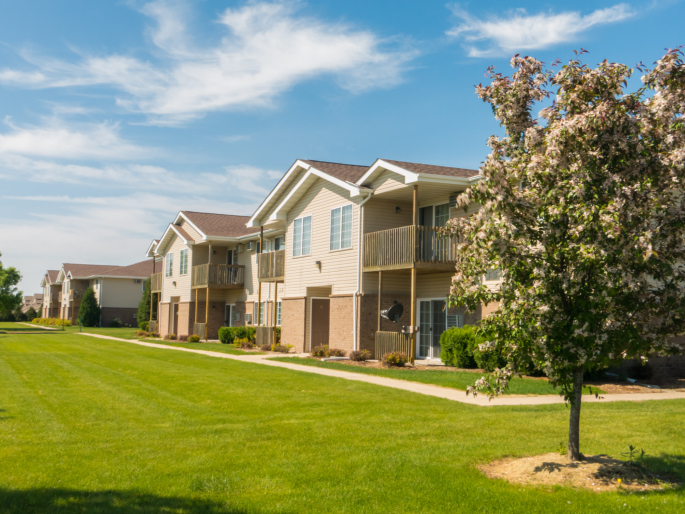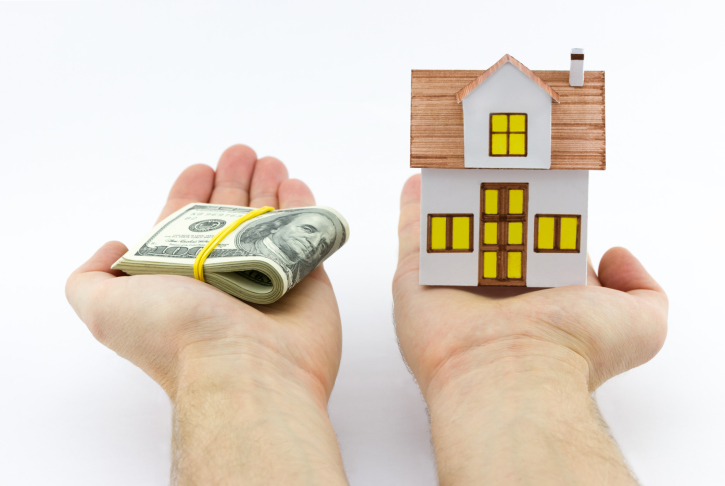House Hunting in a New City? Three Ways to Determine Which Neighborhoods Are Up and Coming
 If you’re moving to a new city and you’re looking for an affordable home in a nice neighborhood, one great way to get a fantastic home without paying sky-high prices is by choosing a home in an up-and-coming neighborhood. Communities that are starting to gentrify make it easy to find an affordable home, especially if you buy before the prices start to rise.
If you’re moving to a new city and you’re looking for an affordable home in a nice neighborhood, one great way to get a fantastic home without paying sky-high prices is by choosing a home in an up-and-coming neighborhood. Communities that are starting to gentrify make it easy to find an affordable home, especially if you buy before the prices start to rise.
So how can you spot a neighborhood that’s on the rise? Here’s what you need to know.
Look For Neighborhoods Popular With Artists & Young People
Young people, artists, musicians, performers, and other bohemians tend to lead the way when it comes to neighborhood revitalizations. These are the kinds of people who typically don’t have copious amounts of disposable income, so they’re looking for something affordable. But they also want to live in a hip, trendy part of town.
And as the area gains more and more creative types, it starts to take on its own creative personality. That makes it attractive to all manner of buyers, which starts driving more and more sales. So if you want to find an up-and-coming neighborhood, just follow the artists, musicians, and Gen Y buyers.
Track The Area’s Average Days On Market
One great way to find which neighborhoods are the most popular with buyers is to track the average number of days on market for properties in those neighborhoods. Your real estate agent can help you find this information. If you notice a slow decrease in days on market over time, it’s a good sign that the neighborhood is on the up and up.
Oftentimes, in an up and coming area, the days on market will decrease before prices start to rise – which will help you get a great deal.
Look Up Building Permits To See Where The Renovations Are
You can also tell if an area is up and coming if there’s a lot of renovation activity happening. Visit your municipal government office and see if you can find information on which neighborhoods are seeing more and more building and renovation permits. Lots of construction and renovation activity in an area indicates that it’s a great place to move to.
Finding a great neighborhood is critical to being satisfied with your home purchase. There are lots of things about your home that you can change, but the neighborhood isn’t one of them – so make sure you’re happy with the area before you buy.

 If you’ve been following the real estate and mortgage industry for any length of time, you’ve probably heard the phrase “buyer’s market” at some point. And although the meaning may seem apparent, it takes some study to understand what actually constitutes a buyer’s market.
If you’ve been following the real estate and mortgage industry for any length of time, you’ve probably heard the phrase “buyer’s market” at some point. And although the meaning may seem apparent, it takes some study to understand what actually constitutes a buyer’s market. If you’re in the process of buying a home, you probably have your deposit and monthly mortgage charges in a spreadsheet, along with a chart of your other expenses and your monthly income. But when it comes to buying a home, there are lots of different costs that will come into play – and it’s easy to forget something. When you’re preparing to close on your new home, make sure you consider these three closing costs that most buyers forget.
If you’re in the process of buying a home, you probably have your deposit and monthly mortgage charges in a spreadsheet, along with a chart of your other expenses and your monthly income. But when it comes to buying a home, there are lots of different costs that will come into play – and it’s easy to forget something. When you’re preparing to close on your new home, make sure you consider these three closing costs that most buyers forget.